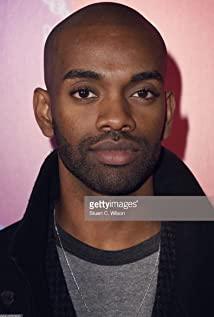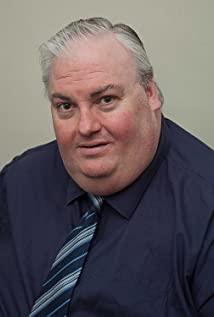Bishop Bian Furu received foreigners. "You don't need to tell me who you are. This is not my house, this is the house of Jesus Christ. This door does not ask the person who walks in if he has a name, but if he has pain. You have pain, You are hungry and thirsty, so stay at ease. And you should not thank me, you should not say that I left you in my house. You are a passer-by, I tell you, rather than say I am in my house, It is better to say that you are in your house. Everything here is yours. Why should I know your name? And before you tell me your name, you already have a name, which I knew. That's right... Your name
is'my brother'." In this way, the road of salvation for the convict Jean Valjean began.
What kind of work is "Les Miserables"? In childhood, I thought it was a story of a bad guy catching good people; in middle school, I thought it was a novel promoting class struggle; until today, I realize that this is an epic about love, grace, and redemption. A true epic has not only an era, but also a human soul. The waves of the soul are magnificent, not inferior to the most intense era. This is why, "Les Miserables" begins with a large description of Bishop Bian Furu's life of faith-it is the key to the whole work. Hugo called this one-million-word masterpiece, conceived for forty years and completed in his later years, as "a religious work."
The earliest creative inspiration came from a farmer named Pierre Mo. In France in 1801, Pierre was sentenced to five years of hard labor for stealing a piece of bread because of hunger. After he was released from prison, life was difficult, and the yellow ID card that accompanied him, like a permanent Cain mark, isolated him from the entire society.
If you stop thinking about it, if you only condemn judicial injustice and criticize the social reality that makes people commit crimes, Les Misérables will be a work that depicts the outside world and is addicted to anger. Writing about suffering is only for accusations and hatred, how can it be worthy of the depth of suffering? A wider novel requires more extraordinary power.
In 1828, Hugo began to collect information about Bishop Miollis and his family. He wants Pierre in reality and Bishop Miollis in reality to meet in the world of his novels. This is the embryo of "Les Miserables". It will be a work that begins with suffering and ends with redemption.
The preparation for writing is extremely solid. Hugo referred to the escape life of his friend Vidoc when he was young, collected a large amount of materials about black glass manufacturing, visited the prisons of hard labor in Toulon and Brest, and witnessed scenes similar to Fantine's humiliation in the streets.
Such a tie appears in the details. During the reading process, I was constantly surprised: Hugo tells every part of society, it is as accurate as a journalist, and as detailed as a fieldwork. For example, the "Da Su" used by convicts to escape from prison (i.e. split a Su's coin longitudinally, hollow it out, carve a thread that occludes each other, and insert a spring); another example is the black word among the bandits, the black word genre , Variations, accent characteristics, user personality... The narration is methodical and vivid.
"Les Miserables" depicts remote towns in other provinces, and also depicts coastal emerging industrial towns, but the city that spends the most pen and ink is Paris. It is almost an encyclopedia about Paris. Here, you can see prisons, barricades, slums, sewers...you can also see rude but kind wild children, holy but rigid monasteries, treacherous and unscrupulous criminal gangs, and slaves who live like maggots and work like cows. . Following Hugo, we wandered in the streets, roundabout alleys, breathing in the breath of every brick and touching the secret behind every shutter.
In "Notre Dame de Paris", there is an entire chapter of "A Bird's Eye View of Paris"; "Les Miserables" is full of tireless descriptions of the streets of Paris. These words seem like love letters: panoramic views of Paris, details of Paris, day of Paris, night of Paris, buildings of Paris, street lights of Paris, pubs of Paris, the invisible underground world of Paris... In full affection, Paris There is life-she is a middle-aged woman with vicissitudes of eyes and shabby clothes, exuding a dark and warm smell. She is the Paris of Hugo and the Paris of Jean Valjean.
Hugo's writing is both magnificent and delicate, and can withstand a microscope: history→time→characters→details, no matter which multiples it is placed under, "Les Miserables" is a perfect work.
In 1832, after collecting the data, the idea of the novel was clear. But it will take twenty years to start writing. During this period, Hugo completed several other novels, some poems and plays. What made him put it on hold again and again? Has he realized that this will be a great work and must be given more time, deep consideration and even suffering, waiting for it to mature and enrich?
In November 1845, Hugo wrote and named it "Suffering" at first. Nearly four-fifths of his creation, he was involved in the political whirlpool and was forced to go into exile. The novel stopped writing in February 1848, and it was another twelve years. In the Atlantic island of Canasi, Hugo in exile endured suffering and regained "Suffering". After substantial revisions and additions, it was completed on June 30, 1861 and officially named "Les Miserables".
"Les Miserables" spans nearly half a century, from the climax of the Great Revolution in 1793 to the uprising of the people in Paris in 1832. Among them, the Battle of Waterloo and the Paris Uprising of 1832 are described in detail and complete. In particular, the huge battle of Waterloo was far away from the main line of the narrative, and there was a forced interruption in the promotion of the plot. But Hugo would rather sacrifice fluency in order to complete his ambition to articulate history.
Of course, Hugo's ambitions go beyond history. He put down Jean Valjean from time to time, staggered his pen, analyzed various trends of thought and discussed different issues. He talked about revolutions, wars, Napoleon, uprisings and riots... He admired people with ideals and a sense of mission, but did not advocate violence. He said: "The people, love the gunner’s cannon fodder"; he believes that ignorance and crime are coins. Two sides, but still sympathetic: "To the ignorant, you should teach them more; the sin of society is not to do compulsory education; it bears the responsibility of creating darkness. When a person's heart is full of darkness, sin grows there. The guilty person is not the person who sins, but the person who creates darkness."
Hugo is a compassionate humanitarian and a devout Christian. His will begins like this: "The three concepts of God, Soul, and Responsibility are enough for one person, and enough for me. The essence of religion is in it. I have lived with this belief, and I will also hold it. This faith is to die. Truth, light, justice, and conscience are God. God is like the day. I leave 40,000 francs to the poor. (He left only 12,000 francs to his mother) "The
conflict between humanitarianism and Christianity ." NS? Not contradictory. Humanitarianism opposes church shackles and religious persecution. But faith and religion are two different things. Faith is the direct relationship between man and God; religion is the organization of man. As long as there are people, there is sin. In "Les Miserables", Hugo made a wonderful comment about the monk system: "Every time we encounter Tao exists in a person's heart, no matter how well he understands it, we always feel awe. Temples, mosques, Bodhisattva temples, shrines, all those places have their ugly side, which we despise; at the same time, they also have their outstanding side, which we admire. The meditation and meditation in the human heart is endless. It is the brilliance of God shining on the walls of mankind.” In people’s hearts there are both goodness that is illuminated by God, and evil that breeds sinfulness and darkness. Whether in the temple, on the street, in the prison or in the police station, human nature is always gray and ambiguous.
This is why, in Hugo's writings, the wild child Gavroche is brave and kind, but swears and likes petty theft; Eppennie loves Marius, sacrifices for him like a saint, and at the same time out of jealousy. Lure him into the barricade and die; Jean Valjean, after being kind, also found jealousy, gloating, and crazy possessiveness when he discovered the love affair between his adopted daughter Cosette and Marius; even the tragic 1832 Paris The People's Uprising, while praising the bravery and noble of the insurgents, did not forget to describe the violent and bloody grievances of fishing in troubled waters, crowding together, and the collective indifference that ultimately led to failure. "All those places have its ugly side, which we despise; at the same time, they also have its outstanding side, which we admire." This is the human nature under Hugo's insight.
This thorough insight is concentrated on the character of Javert. Is Javert a good person or a bad person? He grew up in a prison, worked with criminals, created a hateful personality, abided by the concept of law, and thought he was the incarnation of justice. His style, in the language we are often taught, is: treating the enemy as ruthless as the autumn wind sweeps the fallen leaves. At first glance, it is really difficult to blame him, because Sha Wei is also strict with himself. He accused Grandpa Madeleine of Jean Valjean, a hard labor convict, and when he thought he had mistakenly admitted, he immediately asked to take the blame and resign. In Javert’s world, he never doubted that he was a good man, and Jean Valjean was a bad man, until in the street fight, the bad man saved the life of the good man.
At the first moment, Javert was shocked and confused, and shouted to the savior Jean Valjean: "You really annoy me, you might as well kill me." (He subconsciously used "you" to Jean Valjean for the first time). Soon, Javert had a good chance of catching the enemy, but he helped rescue Marius and finally let Jean Valjean away.
In my opinion, among the inner monologues of all the characters in Les Misérables, two are the most thrilling: one is when Jean Valjean is moved from evil to good by Bishop Bian Furu; the other is after Javert released Jean Valjean. Contemplation and introspection on the banks of the Seine.
Javert was surprised to find that he had betrayed society for loyalty to his conscience; he realized that Jean Valjean had forgiven him, and he had forgiven Jean Valjean, and was even more shocked. He regarded the law as the supreme throughout his life, and at this moment something higher than the law appeared: love and forgiveness. He didn't know what to think of Jean Valjean, and he didn't know how to face his heart and the world that had become so different in an instant. Hugo wrote: "He (Javert) has a superior, Mr. Gisquet, so far he has never thought of another superior: God. This new officer, God, he felt it unexpectedly, and he was confused. ." The values of either black or white, evil or good collapsed. "He (Javert) was moved, what a terrible experience this was." He felt empty, useless, out of touch...ruined. He jumped into the gloomy Seine River.
Hugo referred to Javert's integrity as "dark integrity." Why "darkness"? Because there is no light, this light is love. The Bible says that the general outline of all commandments is love, and those who love others fulfill the law, and love can cover many sins. For example, Sanprismomu, who has never lied in his life, lied to Javert to save Jean Valjean. Lying is a sin, but saving lives is out of love. Hugo commented on this: "Oh, saint! You have been beyond the mortal world for many years. You have already approached your virgin sister and your angel brother in the light. May your lie reach heaven."
In this sense, "Les Miserables" is the epic of the great era, and it is the epic of Valjean's personal soul. Bishop Bian Furu made him see the good, Cosette made him know how to love, and the life of a silent monastery urged him to humble, save Marius and let him overcome evil thoughts, and finally complete the salvation of the soul. Compared with changing the system, changing the soul is a harder and more fundamental task. May more Chinese people love "Les Miserables".
Written on Friday, March 8, 2013
View more about Les Misérables reviews











